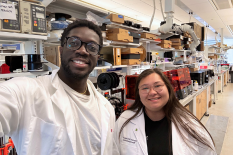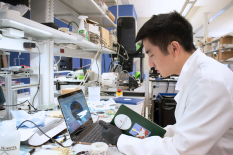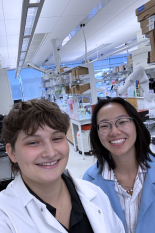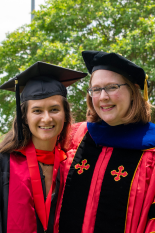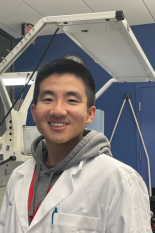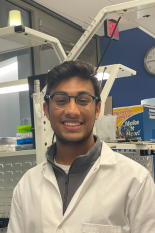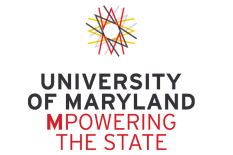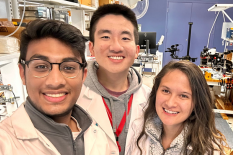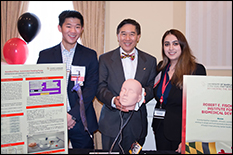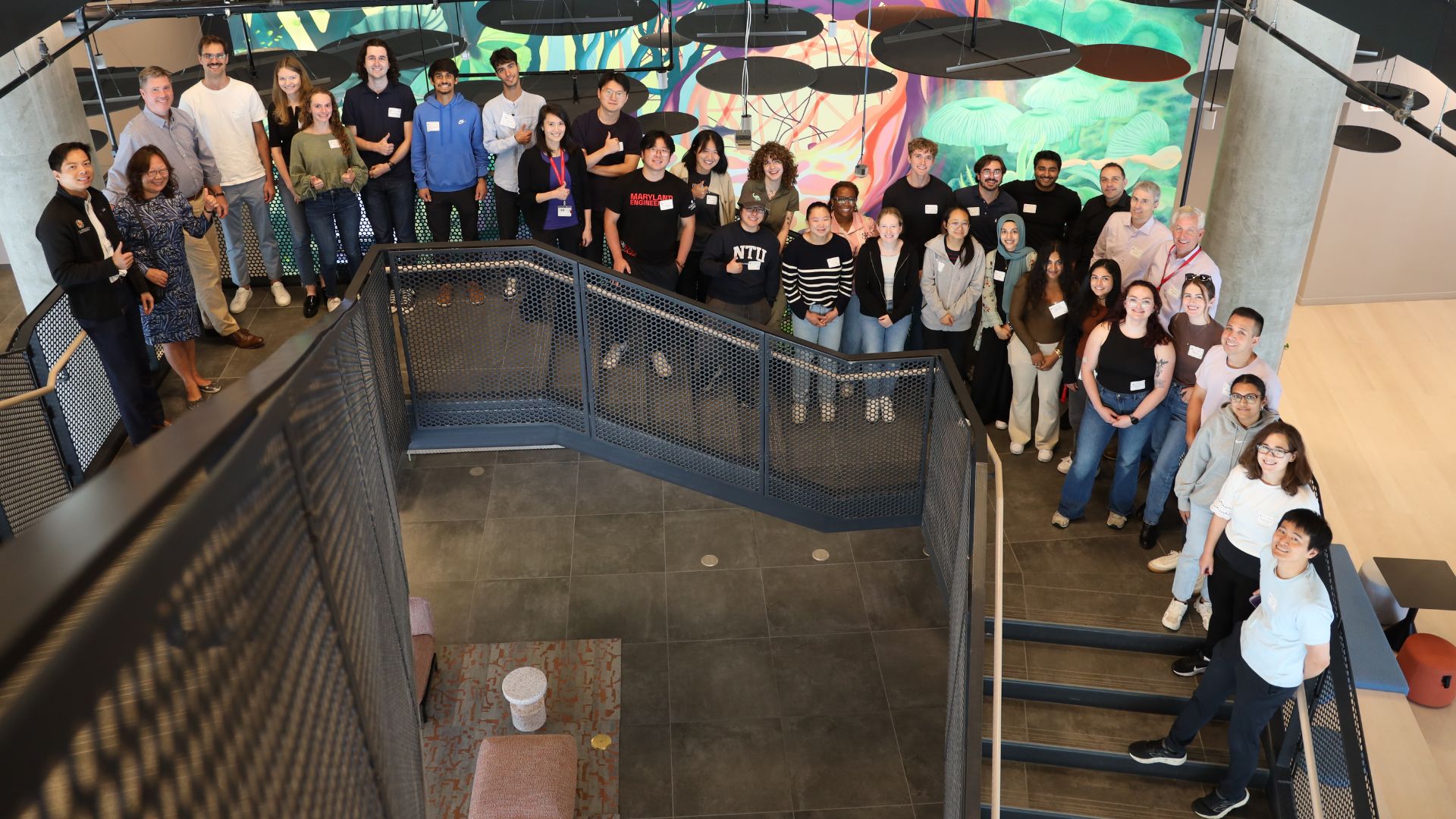News Story
Arsalan Siddiqui, MPower Entrepreneurship Fellow, Graduates
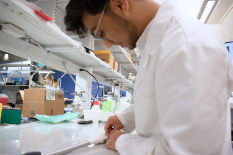
Fischell Institute MPower Entrepreneurship Fellow Arsalan Siddiqui graduated in May 2025 from the University of Maryland with a Master of Engineering degree, and a concentration in bioengineering.
“I was drawn to the MPower Entrepreneurship Fellowship because it didn’t just support research; it supported translational work,” Siddiqui said. “It felt like a rare opportunity to bring something from concept to clinical reality, with access to both funding and mentorship across engineering and medicine.”
Over the past two years, Siddiqui has focused on developing a circular surgical stapler for gastrointestinal anastomosis. Working closely with cardiothoracic surgeons, he aimed to redesign staple formation to improve reliability and tissue healing. The process involved mechanical design, prototyping and continual iteration.
“There were times when the design just didn’t perform as expected. Staples would misfire, or the mechanics wouldn’t translate well from CAD to the physical prototype,” he said. “I had to constantly reevaluate, ask for feedback and test new configurations. It taught me to be both stubborn and flexible. I stayed stubborn about solving the core problem but flexible about how to get there.”
Siddiqui said one of the most surprising aspects of the project was how small design adjustments could dramatically affect performance. A slight change in staple curvature, for example, significantly improved retention. Real-time feedback from surgeons also shaped the design in unexpected ways and often redirected its course.
During the fellowship, Siddiqui was mentored by assistant director Martha Wang, who encouraged him to think critically not just about technical performance but also about real-world viability. He worked closely with Fischell Foundry engineer Ryan Smith for hands-on support and access to prototyping tools.
“Arsalan is a uniquely driven and thoughtful engineer whose consistent enthusiasm, clinical collaboration, and translational focus enabled him to transform the complex challenge of gastrointestinal stapling into a feasible, patient-centered solution,” said Wang.
Siddiqui also gained skills in cross-disciplinary communication, from explaining design choices to surgeons to navigating intellectual property strategy with the university’s tech transfer office.
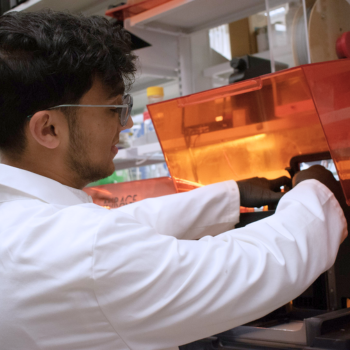 “The Foundry was the perfect place to learn by doing. I had the freedom to test, fail and improve quickly, and that hands-on experience made me a much more thoughtful and adaptable engineer,” Siddiqui said. “Those skills—problem-solving on the fly, clear communication and staying grounded in the user’s needs—have been incredibly useful in every project I’ve worked on since,” he said.
“The Foundry was the perfect place to learn by doing. I had the freedom to test, fail and improve quickly, and that hands-on experience made me a much more thoughtful and adaptable engineer,” Siddiqui said. “Those skills—problem-solving on the fly, clear communication and staying grounded in the user’s needs—have been incredibly useful in every project I’ve worked on since,” he said.
Siddiqui worked closely with clinicians and residents such as Aakash Shah, chief resident of cardiothoracic surgery at the University of Maryland Medical Center, to ensure the device met surgical needs. He also collaborated with the University of Maryland’s IP office to secure early patent protections and received support from engineers and prototyping specialists within the Fischell Institute to help troubleshoot and refine the design.
“The fellowship confirmed something I had been feeling for a while. I want to work at the intersection of medicine and innovation,” he said. “I still love building things, but what motivates me most now is the patient impact. I see myself going into medicine not just to treat patients, but to keep identifying and solving problems that affect care.”
Siddiqui hopes the stapler he developed will make gastrointestinal surgery safer and reduce complications.
The Fischell Institute and MPower Entrepreneurship Fellowship supports students in translating ideas into clinical applications and commercial ventures.
Published May 16, 2025
